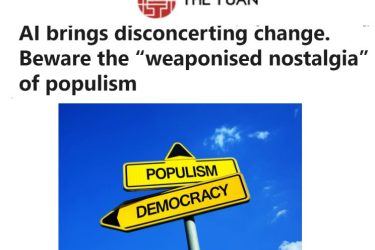 “Art goes beyond creativity, and you have to be conscious to produce it.”
“Art goes beyond creativity, and you have to be conscious to produce it.”
That could be a handy slogan for the forthcoming race against the machines – and it might also be true.
Creativity is the use of imagination or original ideas to create something. Imagination is the faculty of having original ideas, and there seems to be no reason why that requires a conscious mind to be at work. Creativity can simply be the act of combining two existing ideas (perhaps from different domains of expertise) in a novel way.
The eminent 19th-century chemist August Kekule solved the riddle of the molecular structure of benzene while day-dreaming, gazing into a fire. True, he had spent a long time before that pondering the problem, but according to his own account, his conscious mind was not at work when the creative spark ignited. You might argue that Kekule’s sub-conscious was the originator of the insight, and that a sub-conscious can only exist where there is consciousness, but that seems to me an assertion that needs proving.
Can computers be creative? In mid-2015, Google researchers installed a feedback loop in an image recognition neural network, and the result (here) was some fabulously hallucinogenic images. To deny that they were creative is to distort the meaning of the word.
Art is something different. It involves the application of creativity to express something. It might be beauty, emotion, or (my personal favourite) a profound insight into the condition of conscious life. There are probably as many definitions of art as there are people who have sought one, but I suspect that most of us would agree that to qualify as art, a piece of work has to be able to say something to other conscious beings about the experience of the artist. (If that disqualifies a good deal of what is currently sold under the banner of art, then so be it. In fact, three cheers, I reckon.)
To say something about your own experience clearly requires you to have had some experience, and that would seem to require consciousness. Therefore it seems to me that until artificial general intelligence (AGI) arrives, AIs can be creative but not artistic. This in turn means that while Donna Tartt and Kazuo Ishiguro are probably OK for a few decades, Wilbur Smith and James Patterson have chosen the timing of their careers expertly, and their publishers better find something different to do.



